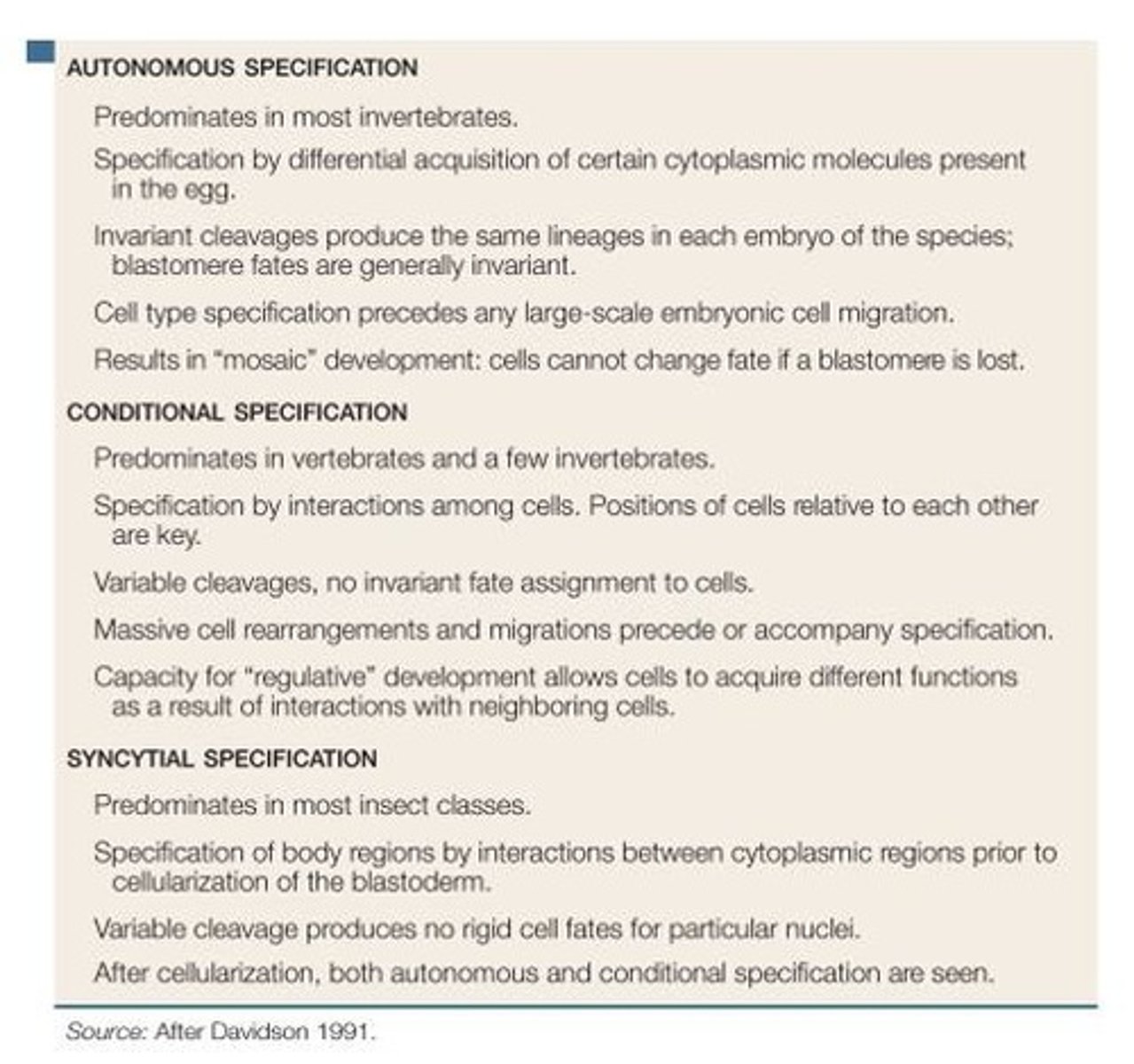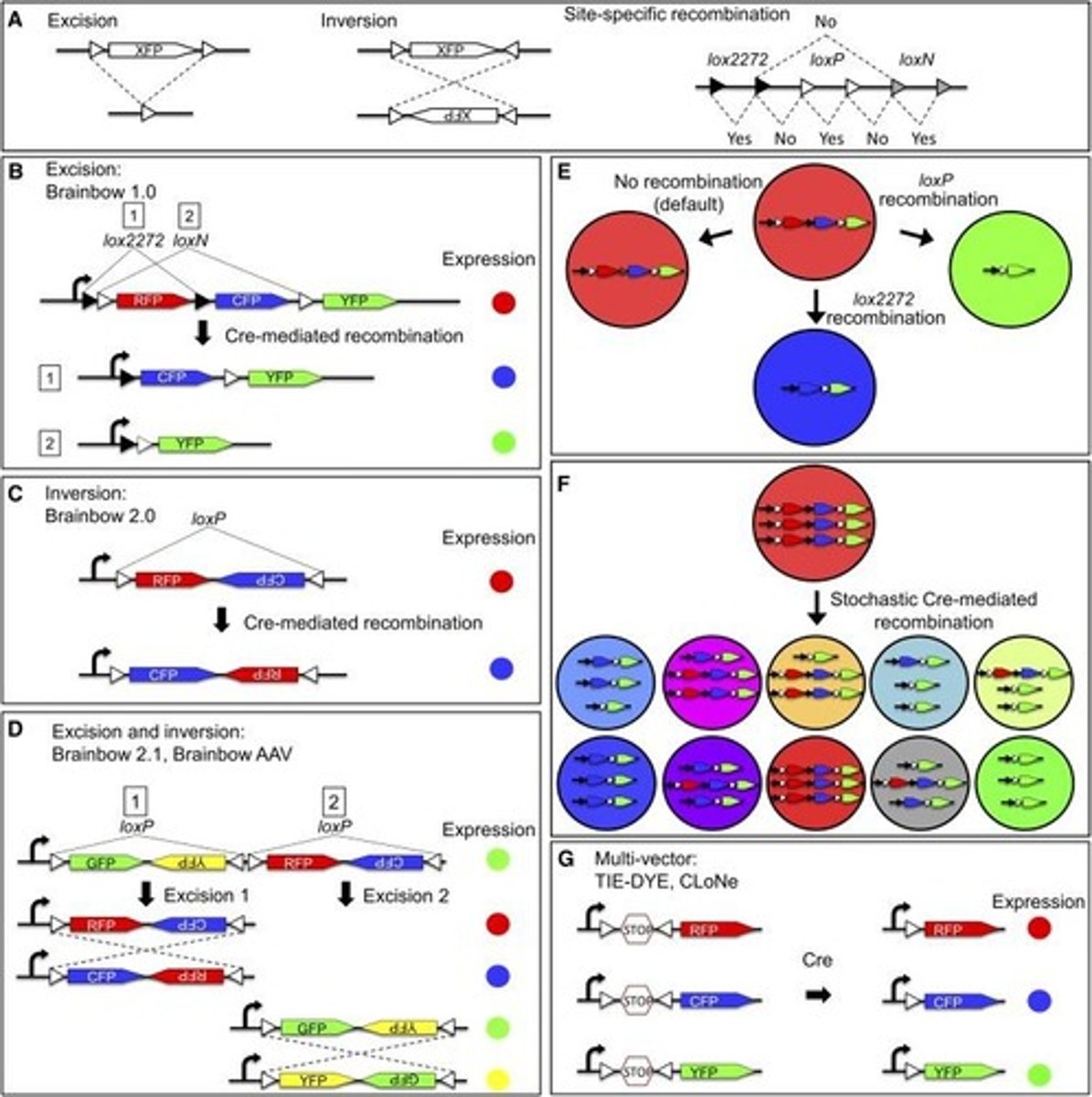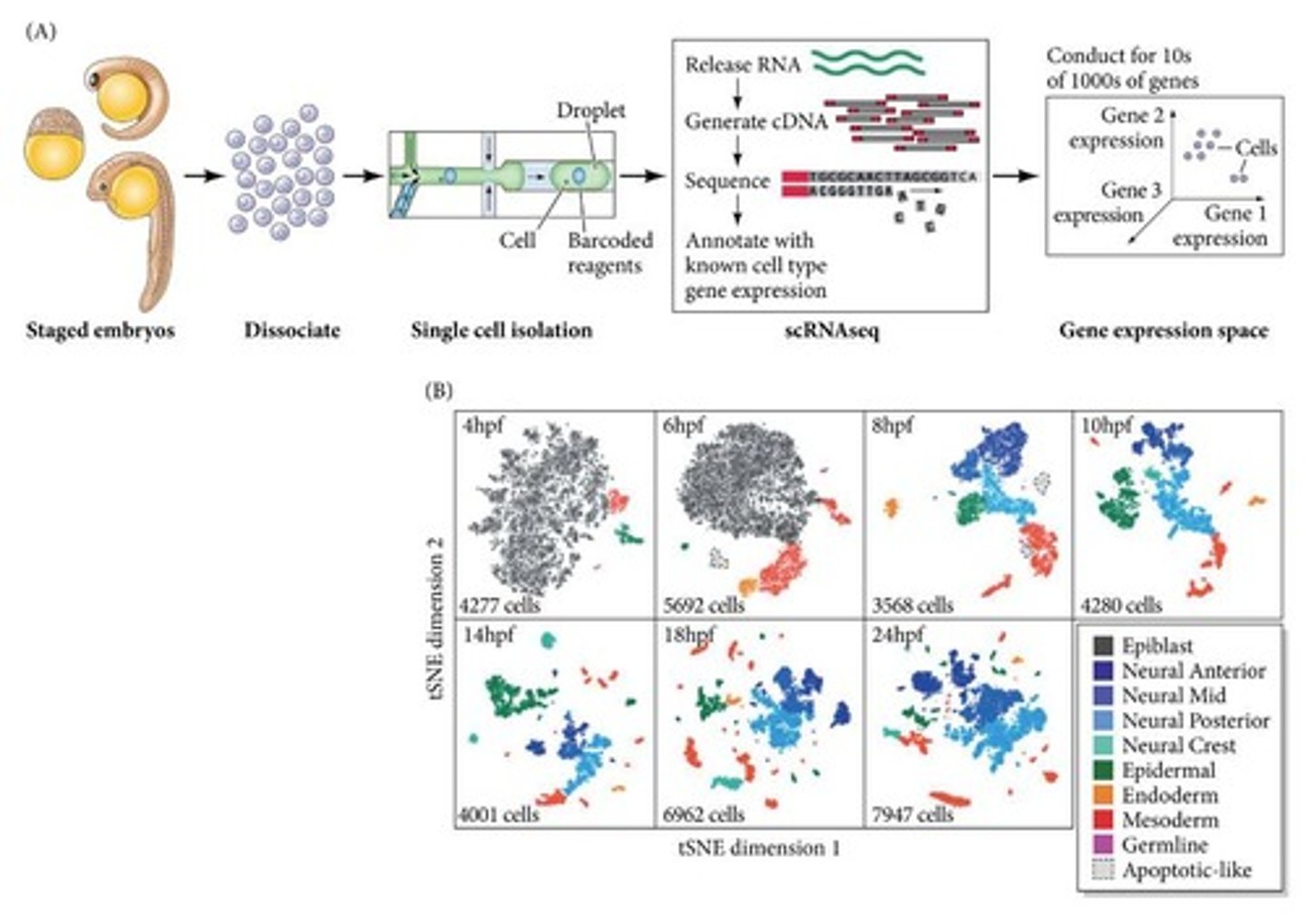Developmental Biology: Cell Specification Types and Maturation Mapping
1/17
There's no tags or description
Looks like no tags are added yet.
Name | Mastery | Learn | Test | Matching | Spaced | Call with Kai |
|---|
No analytics yet
Send a link to your students to track their progress
18 Terms
Differentiation
The process for establishing terminal cellular identity.
Commitment
The stage where cells become dedicated to a specific lineage.
Specification
The ability of cells to replicate autonomously in a neutral environment but can still be altered if stimulus is provided.
Determination
Cells maintain identity in any environment or stimulus.
Autonomous Specification
Influenced by cytoplasmic determinants in the cells, likely transcription factors.

Conditional Specification
Cell fates can be altered to suit their conditions through juxtacrine factors and cell-to-cell contacts.
Syncytial Specification
Cellular identity is established without membranes across the anterior-posterior axis, with many nuclei in the cytoplasm.
Lineage tracing
A method to monitor cytoplasmic determinants to track what factors control specific aspects of development.
Fate Mapping
A technique used to determine the fate of cells during development.
Driesch Postulates
The prospective potency of an isolated blastomere is great that its prospective fate depends on cell interaction.
Brainbow System
A system used to visualize the diversity of neuronal connections across species.

Cellularization
The process by which individual cells form from a syncytium.
Transcriptome
The complete set of RNA transcripts produced by the genome at any one time.
Developmental trees
Diagrams that show changes in gene expression through differentiation.
Positional determinants
Factors that influence cell fate based on their position within the embryo.
Gradients of information
Variations in the concentration of signaling molecules that guide cellular differentiation.
Nuclei separated by microtubules
A characteristic of syncytial specification where nuclei are distinct but share cytoplasm.
Single-cell omic-level techniques
Advanced methods that provide insights into specification by examining gene expression and biochemical changes.
